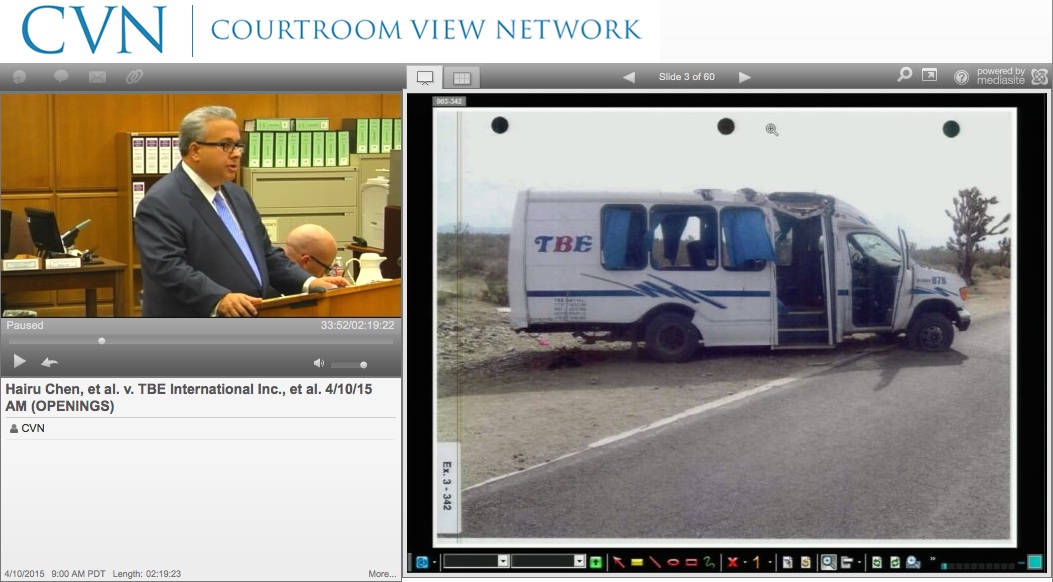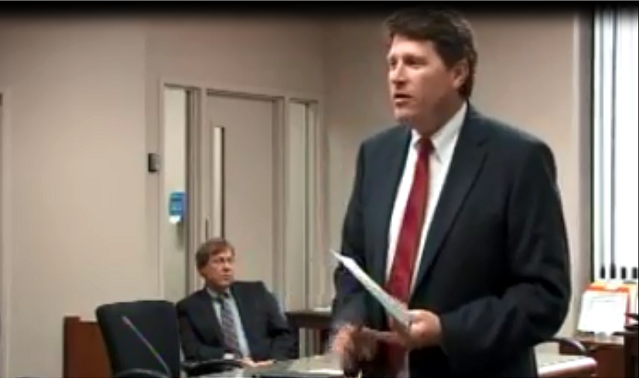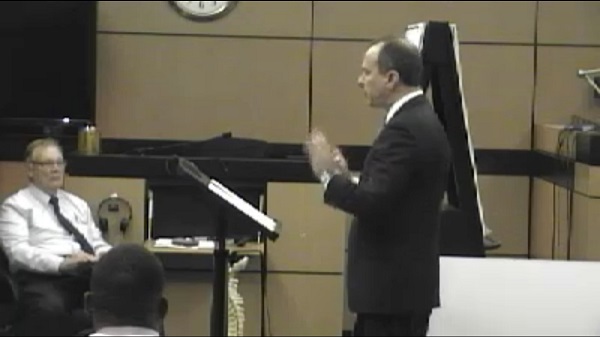Plaintiff's attorney James Holland demonstrates to the jury the injuries Wifred Evans received when the van in which he was traveling was struck by a Norfolk Southern train. A Fulton County Superior Court jury awarded Evans over $1 million in damage as a result of the collision.
Norfolk Southern Derailed by $1M Verdict for Injured Employee in FELA Case
Posted by Steve Silver on Apr 13, 2015 7:18:00 PM
Topics: Negligence, Georgia, Evans v. Norfolk Southern Railway
Heavyweight Firms Square Off At Trial Over Deadly Tour Bus Rollover
Posted by David Siegel on Apr 10, 2015 4:53:00 PM
Topics: Products Liability, automotive, California
Jury Watches Actual Accident Footage As Van/Train Collision Case Begins
Posted by Steve Silver on Apr 9, 2015 12:05:00 PM
Topics: Negligence, Georgia, Transportation, Evans v. Norfolk Southern Railway
Organist Wins $92K for Car Crash that Imperils His Pro Career
Posted by Arlin Crisco on Apr 8, 2015 11:23:15 PM
Jeremy Markman tells jurors that his client, Gary Galloway, suffered back injuries from a 2012 car accident that rendered the professional organist unable to play without pain.
Topics: Negligence, Florida, Galloway v. Leppla
Pain or No Pain? Credibility a Key as $600K+ Car Crash Trial Commences in West Palm Beach
Posted by Arlin Crisco on Apr 7, 2015 11:29:00 PM
Spencer Kuvin describes the accident that he says permanently injured his client, James Allen's back. Allen is asking jurors for more than $600,000 in past and future medical expenses in his suit against Dale Buckner.
Topics: Negligence, Florida, Allen v. Buckner








